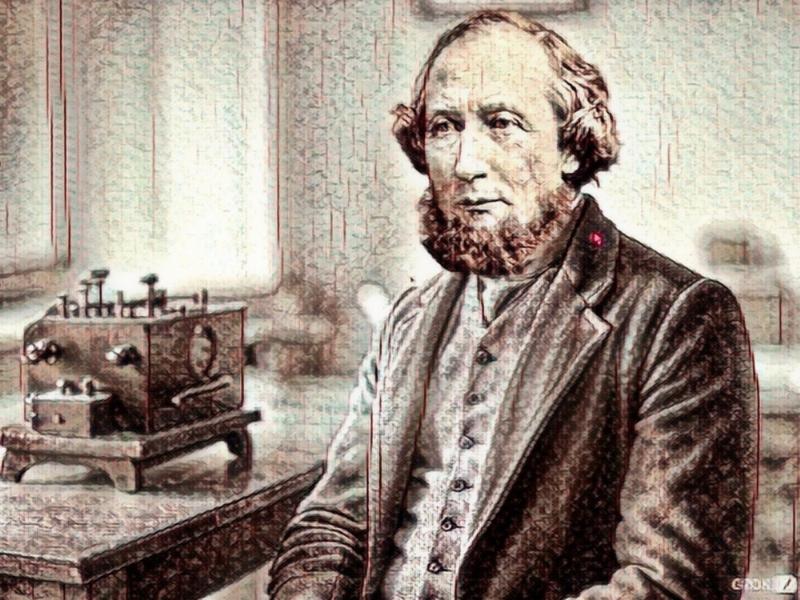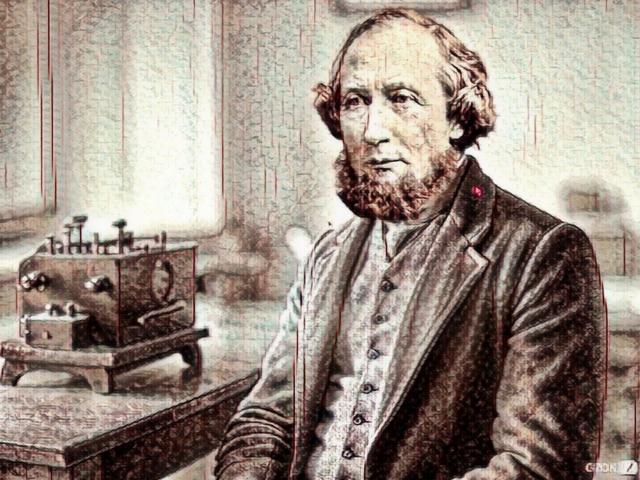


Christmas is a season of hope. At the level of nature, it arrives just after the winter solstice, when the day begins to conquer back the minutes lost to the night, and we can begin to look forward again to spring’s return. And at the spiritual level, it is the anniversary of the moment when the star shone brightly over Bethlehem, heralding the birth—no matter what ideas you have about religion in general and Christianity in particular—of our Judeo-Christian civilization.
For many in America and, indeed, the world, this Christmas seems especially hopeful because it marks the return of a man with big dreams who never gave hope, no matter the odds against him. In that vein, Donald Trump is a classic American figure, so it seems right to remember Cyrus West Field (1819–1892), another classic American figure who changed the world. Like Trump, Field demonstrated an unwavering will, strong determination and integrity, business flair, a clear understanding of the world, and the love of country that can accomplish things that are close to miracles and reshape America and the world.
In 1854, when Field was “just” a wealthy, successful American paper merchant, he chanced to speak with a telegraph magnate. That conversation sparked in him a passion for linking places and people through telegraph cables; that is, to unite the world.

Image made using AI and a photo of Cyrus W. Field.
Field managed to find enough rich associates to fund a Newfoundland–Nova Scotia cable, which was laid between 1854 and 1856. That success led Field to an even bigger dream: to lay a cable between the New and the Old Worlds by linking Newfoundland and Ireland.
For Field, what was decided had to be done, no matter what difficulties he faced. He traveled between England and America 30 times, getting both the British and American governments to collaborate on the plan, which involved their business communities and their navies, and launched the enterprise.
However, during the first attempt to lay the cable in 1857, the cable snapped about 300 nautical miles from the shore. Undeterred, he tried again. The second attempt in 1858 almost ended in disaster, as a nearly ferocious storm nearly sank one of the cable-carrying ships and, again, destroyed the cable.
Nevertheless, Field’s confidence and will proved stronger than the elements. He tried once more, just a month after that disaster. This time, he achieved his goal: For the first time in human history, human words—a telegram of about 100 words—crossed the ocean (a message from Queen Victoria, to which President Buchanan quickly responded).
Field instantly became a kind of American hero—a new Columbus, the benefactor of the nation—and Americans held festivities to honor him. However, the cable’s signals soon became increasingly faint until they died entirely due to the cable’s poor quality.
As often happens when a great man who is also a visionary fails, Field was immediately viewed as a villain. He was accused of fraud and of being a profiteer.
Before he could resurrect his reputation, the Civil War stopped all efforts at relaying a transatlantic cable. Field, however, did not give up. Although Rudyard Kipling penned his immortal “If” a half-century later, he might have been thinking of Field when he wrote
If you can dream—and not make dreams your master;
If you can think—and not make thoughts your aim;
If you can meet with Triumph and Disaster
And treat those two impostors just the same;
If you can bear to hear the truth you’ve spoken
Twisted by knaves to make a trap for fools,
Or watch the things you gave your life to, broken,
And stoop and build ’em up with worn-out tools:
...
Yours is the Earth and everything that’s in it,
And—which is more—you’ll be a Man, my son!
So it was that the moment the Civil War ended, Field mounted another consortium. This time, despite another accident that might have ended the project, Field’s dream came to fruition. After more than a decade of work and thirty ocean trips between Britain and America, Field presided over the first ever fully operational transatlantic capable, which was completed in July 1866.
For his magnificent accomplishment, Field received a gold medal from Congress and the grand prize at the International Exposition in Paris. Poems were written in his honor.
When he died in 1892, these words were inscribed on his tombstone: “Cyrus West Field, To whose courage, energy and perseverance, the world owes the Atlantic telegraph.”
Field did what he did not for money (he did not make any profit), not for power (he did not acquire any), not even for glory (yes, he was revered, but only for some short enough time). He did it because he loved his country and humanity, was a real business organizer, and, most importantly, was, according to the Kipling rubric, a real Man.
All of this should remind you of another real man stepping to the fore. On the threshold of a New Year, let us hope.
